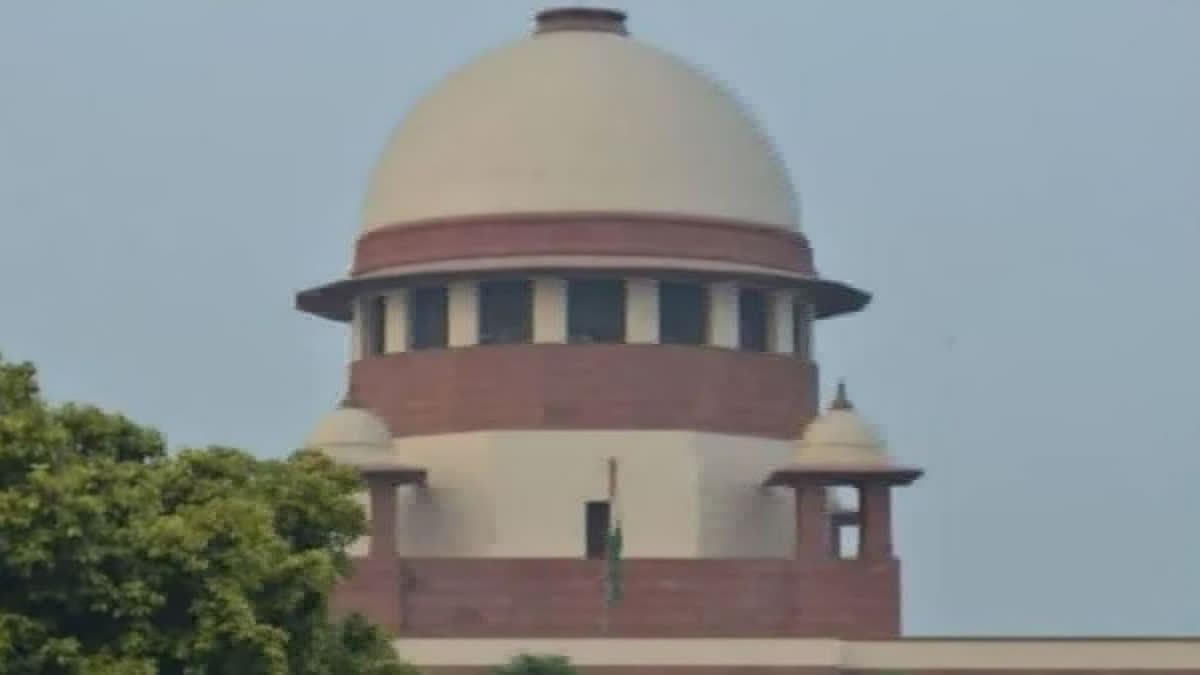New Delhi: The Supreme Court has directed Tamil Nadu Generation and Distribution Corporation Limited (TANGEDCO) to appoint and continue Mohamed Ibrahim, who is colour blind, in its service, as assistant engineer (AE) (Electrical) at the appropriate stage of the grade of pay. The apex court set aside a Madras High Court judgment, which dismissed Ibrahim’s petition claiming arbitrariness in the declining of his candidature by TANGEDCO, on the ground that he was colour blind, though he cleared the public examination and also participated in the viva voce or interview, successfully.
A bench comprising justices S Ravindra Bhat, who retired last week, and Aravind Kumar said the entitlement of the appellant to some form of accommodation, in this case, is undeniable, because he is a graduate in electrical engineering and also the objective material on the record shows that the colour vision impairment is mild.
“The facts of this case instruct us that there is nothing on record to suggest that whatever condition the appellant had, was without his awareness; his academic performance, skill and proficiency, during the course of his education nowhere appears to have highlighted the colour vision deficiency, which appears to have been discovered after his selection," said the bench, in its judgment delivered on October 16.
The bench said the law regarding the rights of person with disabilities have set out provisions to enable participation, and empowerment of persons with disability (PWD), including affirmative action for their admission to educational institutions, entry-level reservations in established controlled by the state or its agencies, and general provisions to enable physical access to institutions. The law also mandates the provisioning of existing institutions, to accommodate PWDs, in physical infrastructure, and at all points to enhance the full participation and functioning of such individuals.
The bench said its provisions defining “disability” and persons with disabilities are fairly elaborate; interestingly these concepts are defined in an inclusive manner, leading to potentialities for their use. It further added however, at the same time, the actual benefits in the form of affirmative action are defined by a specific category of PWDs (orthopaedical, visual, hearing, mental, etc.) and tied to the context of “benchmark” disabilities, which entitles those PWDs who qualify with a certain threshold of disability (40 per cent or more) to the affirmative action and other similar benefits.
“The nature of inclusion of specified categories only to the exclusion of other categories of disabilities, on the one hand, and the eligibility of a threshold, in the opinion of this court, constitute barriers. The twin conditions of falling within defined categories, and also a threshold condition of a minimum percentage, of such disabilities, in fact, are a barrier”, said Justice Bhat, who authored the judgment on behalf of the bench.
The bench noted that the facts of this case demonstrate that the appellant is fit, in all senses of the term, to discharge the duties attached to the post he applied and was selected for. “Yet, he is denied the position, for being “disabled” as he is colour-blind. At the same time, he does not fit the category of PWD under the lexicon of the universe contained within the Act ( Rights of Persons with Disabilities Act, 2016). These challenge traditional understandings of what constitutes “disabilities”. The court has to, therefore, travel beyond the provisions of the Act and discern a principle, which can be rationally applied”, said the bench.
The bench said TANGEDCO’s units and organisational structure have sufficient possibility for accommodating the appellant in a unit or department which may not require the utilization of skills that involve intense engagement with colour. Ibrahim moved the apex court challenging the Madras High Court judgment, delivered on July 30, 2021, declining him any relief.
The apex court set aside the High Court judgment and directed TANGEDCO to appoint and continue the appellant in its service, as AE (Electrical) at the appropriate stage of the grade of pay, from the date he was terminated from service, or his appointment was cancelled, and accommodate him in a suitable department, where he can be given appropriate responsibilities. “The appellant shall also be entitled to 50% of full arrears of salary, and all allowances and his service shall be reckoned from the original date of appointment, (which was later cancelled), with full continuity”, it said.
Also read: In-laws taunting forced a woman to self-immolate; SC convicts accused for abetment to suicide



